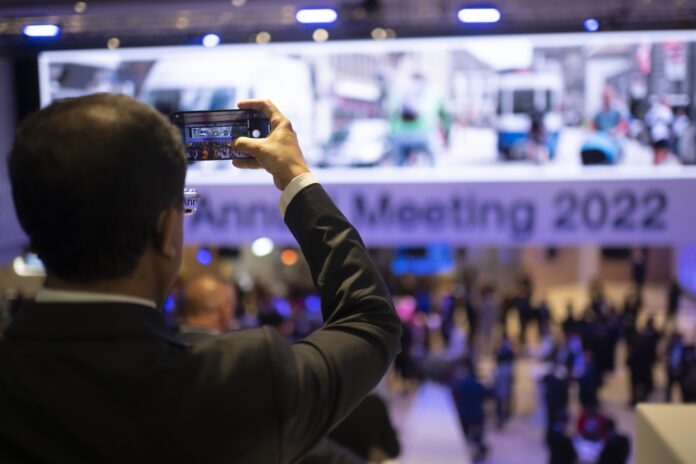The World Economic Forum reopens its doors after two years of postponements due to the pandemic and with an unthinkable mission for years in Davos: save globalization. In other words, curb the trends that threaten to break decades of global trade liberalization and a system in which the place where goods were produced had been downplayed.
The annual meeting begins with two absences unthinkable until now; the snow and the Russian oligarchs. The traditional January call had to be postponed due to the pandemic and the Russian billionaires who have been regular protagonists of the Davos meetings cannot participate this year. Neither do members of the Russian government. “It is the correct decision,” explained the president of the Forum, the Norwegian Borge Brende, stressing that if Russia respects the UN Bill of Rights in the future it will be able to return to the Swiss alpine town.
But the biggest surprise is having to defend globalization, which the Forum considered unstoppable and inevitable since the last century. Especially after Chinese President Xi Jianping’s famous speech in Davos in 2017 when he defended globalization against the doubts of Donald Trump. Globalization was so strong that a communist defended it against the protectionist temptations of a theoretical champion of US neoliberals. All that is prehistory now.
The pandemic and the breaks in the supply chains have caused a review of globalization exacerbated by the geopolitical tensions derived from the Russian aggression in Ukraine. “We must resist geoeconomic fragmentation. Only international cooperation can tackle urgent global problems such as solving food and other shortages, removing barriers to growth and saving our climate,” says International Monetary Fund Managing Director Kristalina Georgieva. to intervene this Monday in the Forum. This fragmentation “would harm everyone regardless of their income.”
In an article with her collaborators, the Bulgarian makes a bleak summary of the situation: “Russia’s invasion of Ukraine has aggravated the Covid-19 pandemic, one crisis after another, devastating lives, dragging down growth and raising inflation. High food and energy prices are hitting households around the world.” In parallel, “the tightening of financial conditions is putting even more pressure on highly indebted nations, companies and families [as is the case with Spain]. And countries and companies are reassessing global supply chains amid persistent interruptions”.
He adds this icing: “If we add to this the increase in volatility in the financial markets and the continuous threat of climate change, we face a host of calamities” that, in his opinion, put “the world economy to its test hardest since World War II.
“The return of war, epidemics and the climate crisis, all these disruptive forces have derailed the global recovery,” said Forum founder Klaus Schwab. “These issues must be addressed at Davos; the global food crisis, in particular, needs our immediate attention.”
The formation of blocs after the war in Ukraine hits globalization, but it had already been dragging problems, admits Georgieva. Only the uncertainty around it in 2019 cut the growth of the world economy by one point and currently “some 30 countries have restricted trade in food, energy and other key commodities.”
How to avoid this return to protectionism? The IMF recalls the success of globalization: “In the last three decades, the flows of capital, goods, services, and people have transformed our world, aided by the spread of new technologies and ideas. These forces of integration have boosted productivity and living standards, tripling the size of the world economy and lifting 1.3 billion people out of extreme poverty. But they also admit problems that the Forum, including Wall Street sharks like Ray Dalio, assume must be faced so that the system does not collapse. “Inequalities of income, wealth and opportunity have continued to worsen within too many countries for too long, and between countries in recent years as well. People have been left behind as industries had to adapt amid global competition” , says the managing director of the IMF:
She offers four recipes in the Forum: “Strengthen trade by removing obstacles to lower prices”; “cooperation to restructure the debt of the most vulnerable indebted countries”; “modernize the international system of cross-border payments”; and “acceleration of the energy transition”, but “with a global approach” and “compensating those affected”.
The absence of the US and Chinese authorities, the two leading world economic powers, tarnishes the current edition of the Forum, although 50 heads of state and government will attend, including the German chancellor, Olaf Scholz, the emir of Qatar or the President of the Government, Pedro Sánchez. Also electronically, the president of Ukraine, Volodymyr Zelenski.
In parallel, 1,250 business leaders and a hundred technological entrepreneurs are expected, who do not want to, it is that they live from globalization.
Conforms to The Trust Project criteria








